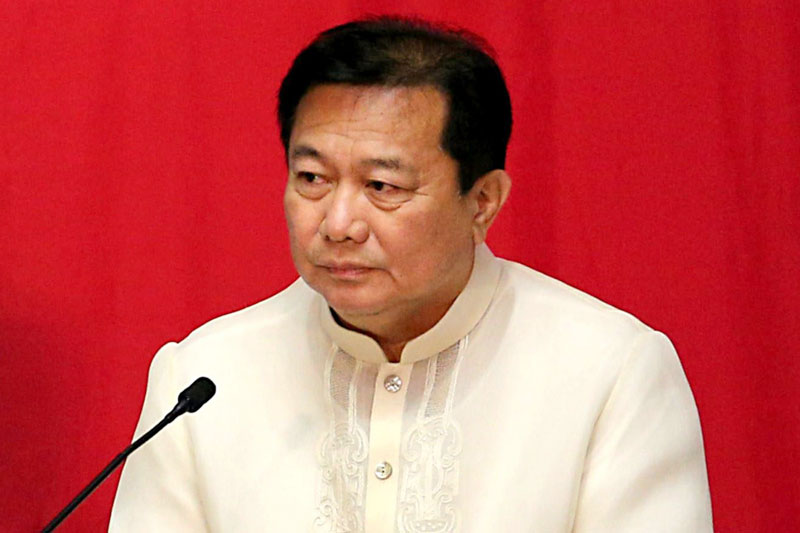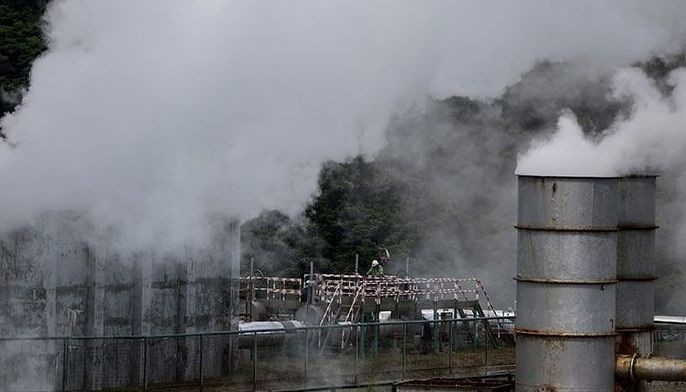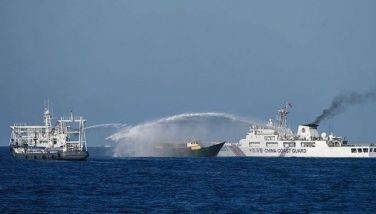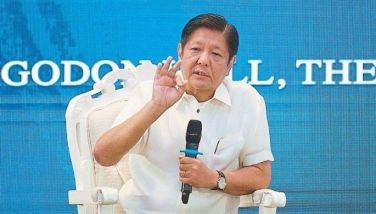Can Duterte transfer his 'power to enforce laws' to Robredo?
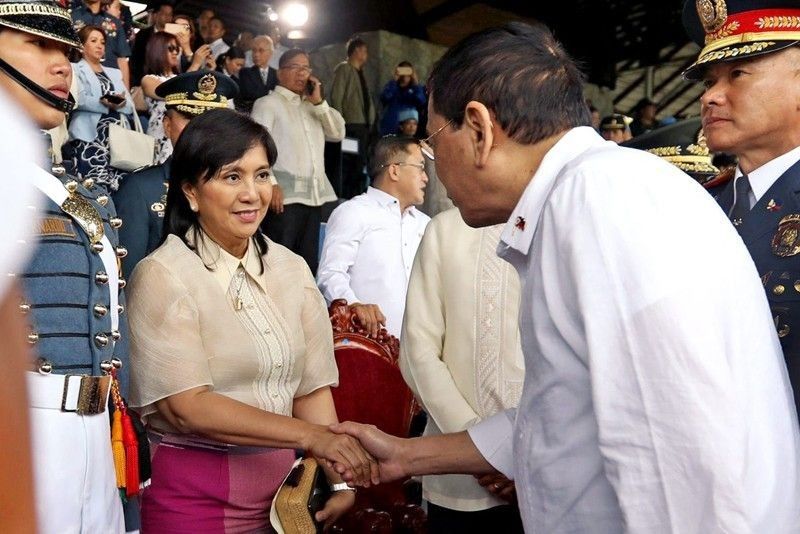
MANILA, Philippines (Updated 3:03 p.m., October 30) — An irked President Rodrigo Duterte on Monday claimed that his office is writing a letter to Vice President Len Robredo to tell her that he is handing over his powers to enforce the law to Vice President Leni Robredo for about six months.
This, after the vice president was quoted in a news report as saying that the government should halt its "war on drugs."
Robredo on Sunday clarified that she does not want to end the anti-illegal drugs campaign but believes that it should be reviewed and refined because of the rising number of drug users, deaths and police abuse.
Her clarification did not make the cut and Duterte still chided her for her statement.
"I will surrender my powers to enforce the law, ibigay ko sa Vice President, ibigay ko sa kanya mga six months. Siya ang magdala. Tignan natin kung anong mangyari," Duterte after the oath-taking of newly-appointed government officials in Malacañang.
(I will surrender my powers to enforce the law, I will give it to the vice president, I will give it to her for six months. Let her handle it.. We’ll see what happens)
“Sige gusto mo… mas bright ka? Sige ikaw, subukan mo,” he added.
(Go, you want it…are you brighter? Go ahead, try it)
The president said he is sending the letter to the vice president through Executive Secretary Salvador Medialdea.
What the laws say
Under the 1987 Constitution, Article VII Section 8, the vice president can only act as the president in case of the chief executive’s death, permanent disability, removal from office and resignation.
Section 8. In case of death, permanent disability, removal from office, or resignation of the President, the Vice-President shall become the President to serve the unexpired term. In case of death, permanent disability, removal from office, or resignation of both the President and Vice-President, the President of the Senate or, in case of his inability, the Speaker of the House of Representatives, shall then act as President until the President or Vice-President shall have been elected and qualified.
Section 11, however, states that the president can transmit his powers to the vice president but only through a written declaration addressed to the Senate prsident and the House speaker.
The vice president shall then serve as the acting president.
Section 11. Whenever the President transmits to the President of the Senate and the Speaker of the House of Representatives his written declaration that he is unable to discharge the powers and duties of his office, and until he transmits to them a written declaration to the contrary, such powers and duties shall be discharged by the Vice-President as Acting President.
The Constitution does not mention the transfer of powers can be coursed through the executive secretary.
Cabinet clusters
The Cabinet is the highest policy-making body in the executive branch.
Since 2011, the Cabinet has been organized "thematically" into five clusters "to serve as venue and mechanism for coordination, harmonization, complementation, and synergy" among departmnents and agencies.
Among those clusters is the Security, Justice and Peace Cluster—sometimes also referred to as the Security cluster—which, according to Executive Order No. 07 (2016), which "shall ensure the preservation of national sovereignty and the rule of law."
The same EO holds that the cluster should "focus on the protection and promotion of human rights and the pursuit of a just, comprehensive, and lasting peace."
Among the cluster's stated goals are "protecting our national territory and boundaries" and "strengthening the rule of law."
Initially chaired by the executive secretary when it was created in 2011, Duterte designated Defense Secretary Delfin Lorenzana as chair of the Security cluster through Executive Order 7 (2016).
The cluster includes the executive secretary, Cabinet secretary, and the secretaries of the departments of Interior and Local Government; Foreign Affairs; and Justice.
The national security adviser and the national security adviser are also members of the Security cluster.
Temporary designation?
According to the Administrative Code, "the president shall have control of all the executive departments, bureaus, and offices" and "shall ensure that the laws be faithfully executed."
The president also has the power to "temporarily designate an officer already in the government service or any other competent person to perform the functions of an office in the executive branch" in case of a vacancy or if the person in that position "is unable to perform his duties by reason of illness, absence or any other cause."
The Department of the Interior and Local Government, to which the Philippine National Police is attached, is headed by Secretary Eduardo Año.
The Philippine Drug Enforcement Agency is headed by Director General Aaron Aquino.
Neither seems unable to perform their duties.
Temporary designations can last no longer than a year.
- Latest
- Trending















